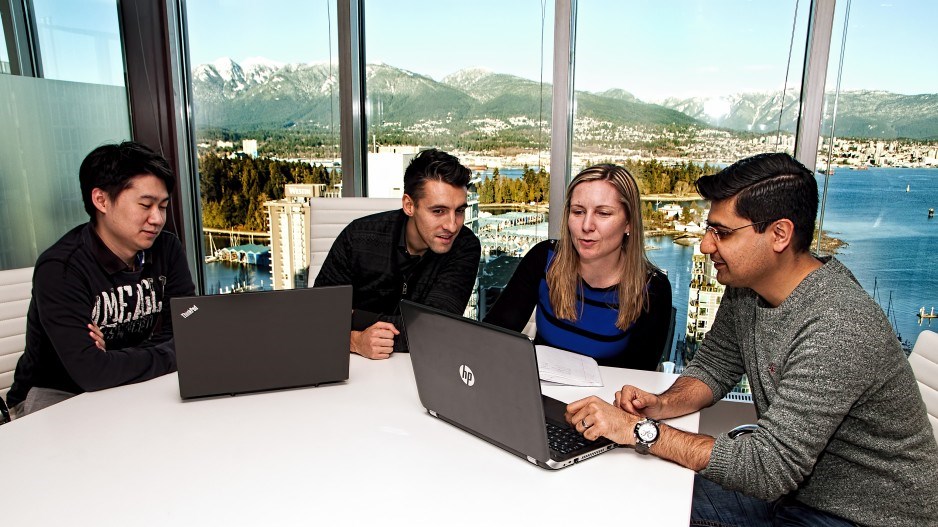When Marty Reed moved from San Francisco to Vancouver in 2015, getting a work permit was a “pretty straightforward” exercise for the venture capital veteran.
“It was all the other stuff that was an absolute nightmare. Health care to education to banking,” said the CEO of Evok Innovations, a $100 million clean-tech fund backed by the BC Cleantech CEO Alliance, Cenovus Energy (TSX:CVE) and Suncor Energy (TSX:SU).
As Ottawa rolls out a two-year pilot program designed to speed up immigration for highly skilled foreign workers, Reed said the government’s Global Skills Strategy should take a big-picture approach to attracting global talent.
“It’s the ticket, but it’s not the overall package. More importantly, are we providing global talent an attractive market to come to in terms of total quality of life?” he said.
“The challenge for government is this issue doesn’t fall under one ministry. The minister of immigration can’t address challenges in the banking system that make it very difficult for a person like me to come into the country.”
The Global Talent Stream pilot launched June 12 as part of the temporary foreign workers program, which came under fire in 2014 over abuses in the fast-food industry.
Meanwhile, tech companies desperate for highly skilled workers to help fill in the talent gaps in cities like Vancouver or Toronto faced waits of up to a year while going through onerous labour market impact assessments (LMIA). Ottawa is promising the pilot will process 80% of work permit applications within 10 business days. Employers will have to pay $1,000 per position.
Immigration lawyer Kelly Goldthorpe of Toronto’s Green and Spiegel LLP said it now appears “the pendulum is swinging the other direction from how difficult it used to be to get LMIA applications” approved.
“Companies have often sort of complained about how long it took to bring in global talent,” she said in a webinar the day of the program’s launch.
“They face issues with having workers face six to 12 months’ wait time for processing their documents.”
Tech firms that can’t find Canadians with in-demand skills will need a referral from a designated partner with Employment and Social Development Canada, such as the BC Tech Association.
Employers can also refer to a list of eligible jobs that include software engineers and designers, computer engineers, database analysts, and web designers and developers.
But Reed said he has concerns any time the government tries to define what “highly skilled worker” means.
“It’s fraught with peril,” Reed said. “From my purview, Canada already has some of the world’s top STEM [science, technology, engineering, medical and math] talent. What’s in particular short order is world-class sales, marketing and business development expertise.”
Sales, marketing and business development experts are not covered as eligible positions under the pilot.
However, the pilot includes a provision allowing professionals like management consultants to forgo a work permit if they land in Canada with a letter from their company to work for fewer than 30 days in a year.
This could apply to foreign workers with expertise in sales, marketing and business development that are assisting high-growth companies for short periods.
“One of the most difficult questions that our clients always ask us: ‘Can this person come in as a business visitor?’ And I really think that this new provision takes that question away for a short period of time,” said Stephen Green, an immigration lawyer at Green and Spiegel LLP who consulted with the federal government on the development of policy for the Global Skills Strategy.
Progressa CEO Ali Pourdad said the pilot program “absolutely” addresses some of the hiring needs for his Vancouver-based financial technology company.
“We have large U.S. players like Microsoft [Nasdaq:MSFT], Amazon [Nasdaq:AMZN], etc., setting up in Canada to ensure they have a home for their offshore talent, given current Trump policies,” he said in an email.
“This [pilot] gives us access to talented technology individuals from India, Pakistan, etc. Should really help foster our capabilities to innovate.”
But Pourdad said questions remain regarding whether larger corporations or smaller corporations will ultimately benefit more.
“With there already being a trend of U.S. companies setting up shop in Canada due to geopolitical reasons, it could skew the direction of a program like this to the bigger players that already have a track record of hiring offshore,” he said.
True North Ventures co-founder Michael Tippett said he also expects the Trump factor to affect employers looking to scoop highly skilled workers wary of the political uncertainty in the U.S.
True North, which helps U.S. companies establish subsidiaries in Canada, launched in January just as U.S. President Donald Trump signed a travel ban against citizens from seven Muslim-majority countries.
“The [companies’] thought process is more strategic and less about a panicked response to an urgent situation,” Tippett said.
“Companies that have raised venture capital and their investors are saying, ‘It’s not enough for you guys to sit in stasis. You need to be hiring 100 or 200 or 500 people.’ So for those companies, they’re thinking about it more strategically.”




